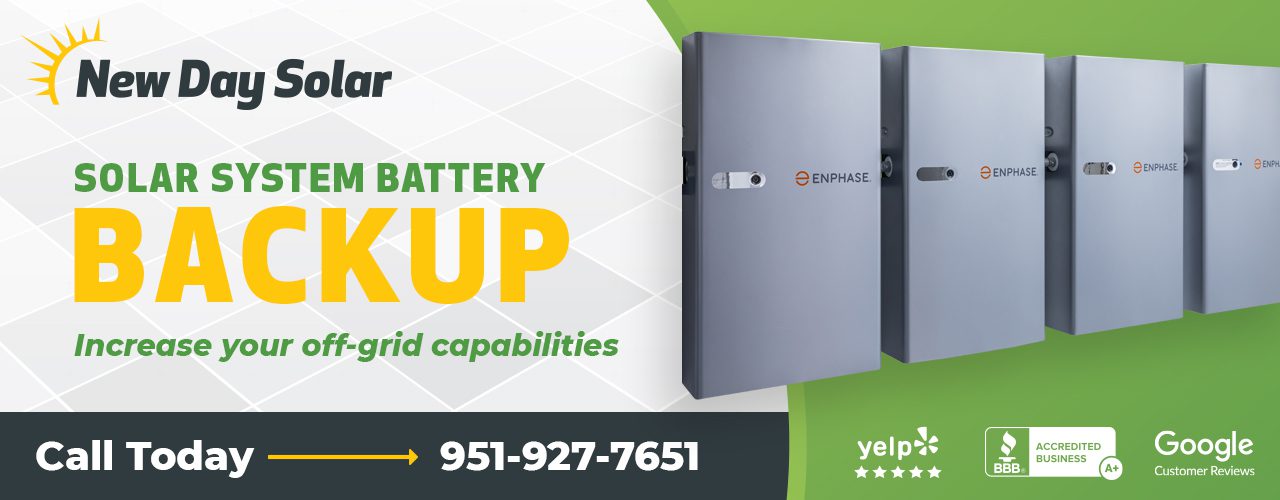Adding Battery Backup to Your Existing Solar System
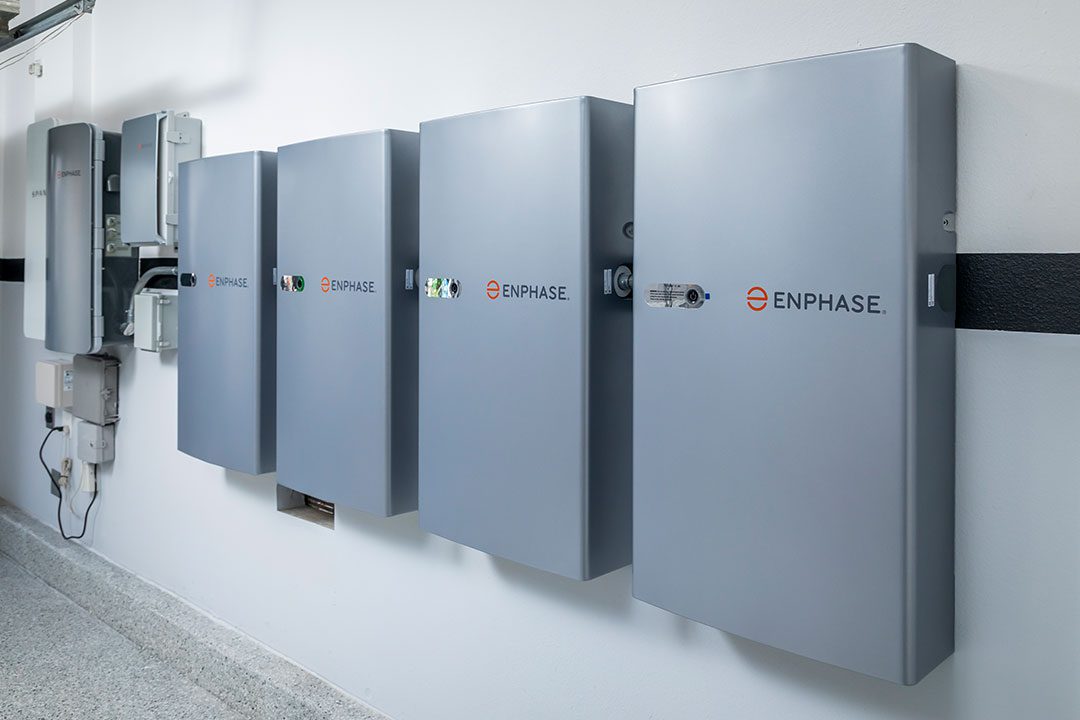
Are you a homeowner in Southern California looking to maximize the benefits of your solar system? Adding a battery backup to your existing solar panel setup could be the solution you’ve been searching for.
In this guide, we’ll explore the ins and outs of integrating battery storage with your solar system, from understanding the benefits to assessing the costs and logistics. Whether you’re new to solar energy or already have a system in place, this resource will provide you with valuable insights to help you make an informed decision about adding battery backup to your home.
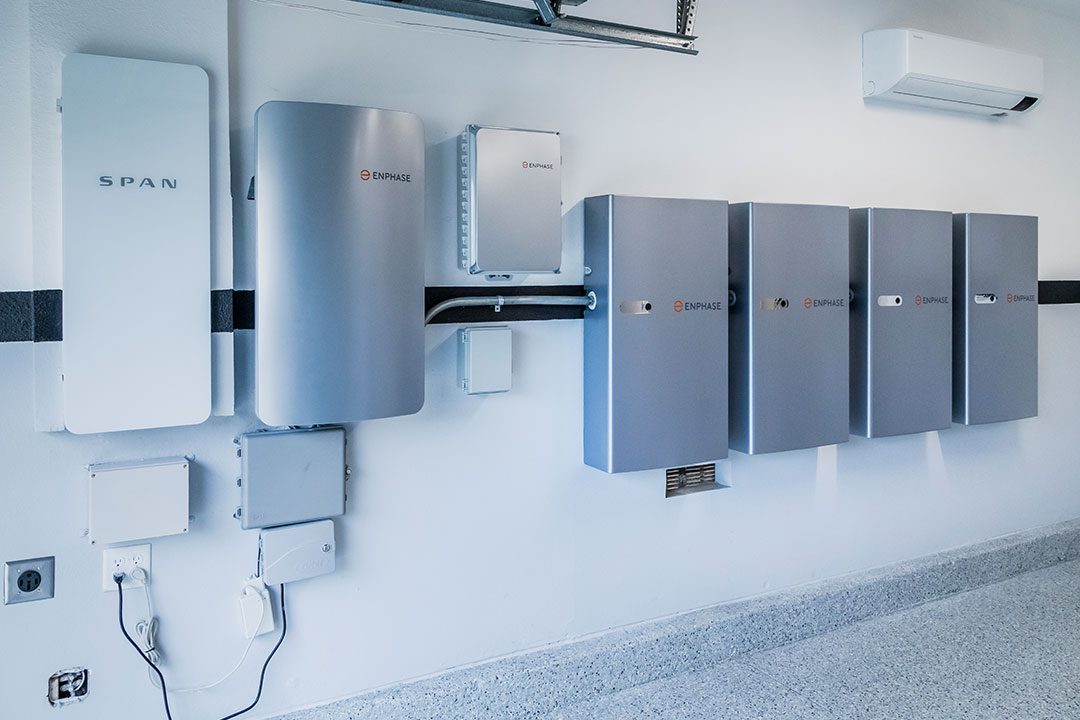
Is It Possible To Add a Battery To An Existing Solar System?
Yes, it is entirely possible to add a battery to an existing solar system.
With advancements in technology and the increasing demand for energy resilience, many homeowners are opting to integrate battery storage with their current solar setups. This addition allows for the storage of excess solar energy generated during the day for use during periods of low sunlight or power outages.
Adding a battery to an existing solar system involves connecting the battery storage unit to the system’s inverter, which manages the conversion of DC power generated by the solar panels into AC power usable in the home.
This integration typically requires minimal modifications to the existing setup and can be completed by New Day Solar technicians.
The compatibility of the battery with the current solar system components should be considered before installation.
Different battery storage solutions may require specific inverters or controllers to function optimally. Additionally, the capacity and capabilities of the existing solar system should be assessed to ensure seamless integration with the new battery.
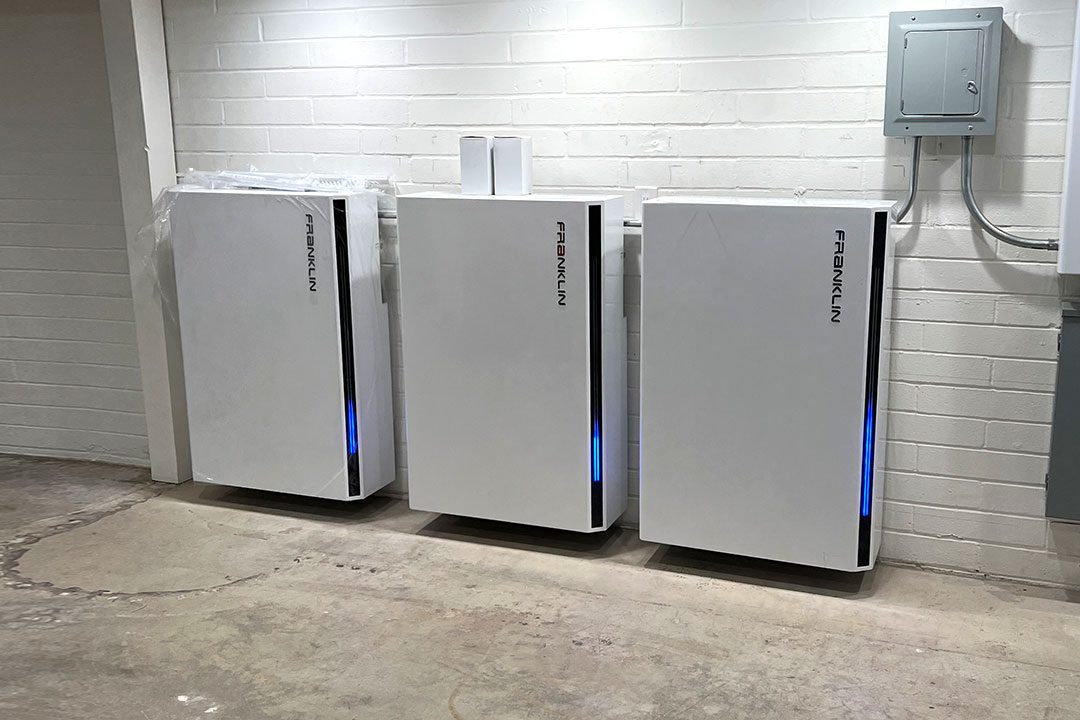
Why Add Batteries to an Existing Solar System?
Adding batteries to a solar system offers a multitude of benefits that can enhance the functionality, efficiency, and reliability of the system. From increasing energy independence to providing backup power during outages, here are several compelling reasons why homeowners may choose to incorporate battery storage into their solar setups:
Energy Resilience:
Batteries provide backup power during grid outages, ensuring that essential appliances and devices remain operational even when the sun isn’t shining. This increased energy resilience offers peace of mind and comfort during emergencies.
Maximizing Solar Energy Usage:
By storing excess solar energy generated during the day, batteries enable homeowners to utilize more of the energy produced by their solar panels. This stored energy can be used during periods of low sunlight or at night when solar production is limited, reducing reliance on the grid.
Time-of-Use Savings:
Battery storage allows homeowners to take advantage of time-of-use electricity pricing by storing solar energy when rates are low and using it when rates are higher. This can lead to significant cost savings on electricity bills over time.
Off-Grid Capability:
For homeowners seeking greater energy independence, adding batteries to a solar system can enable partial or complete disconnection from the grid. This off-grid capability is especially valuable in remote locations or areas prone to frequent power outages.
Environmental Impact:
Utilizing battery storage with a solar system reduces reliance on fossil fuels and decreases greenhouse gas emissions associated with traditional grid electricity. By maximizing the use of clean, renewable energy, homeowners can contribute to a more sustainable future.
Grid Stability:
Battery storage systems can help stabilize the grid by providing ancillary services such as frequency regulation and peak shaving. By storing excess energy during periods of low demand and releasing it during peak periods, batteries help balance supply and demand on the grid.
Long-Term Cost Savings:
While there is an upfront cost associated with adding batteries to a solar system, the long-term savings can be substantial. By reducing reliance on the grid and optimizing solar energy usage, homeowners can lower their electricity bills and potentially recoup the investment over time.
Technological Advancements:
With ongoing advancements in battery technology, storage solutions are becoming more efficient, affordable, and accessible. New innovations such as lithium-ion batteries and smart energy management systems are making battery storage an increasingly attractive option for homeowners.
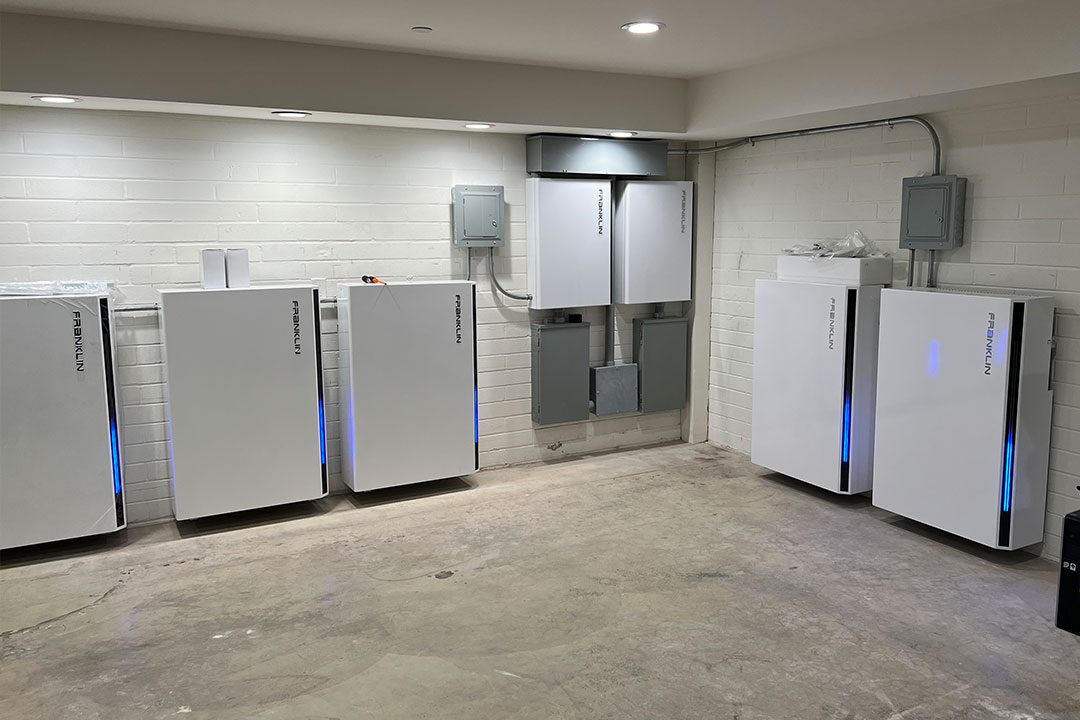
What To Consider Before Adding Solar Battery Storage
Before making the decision to add solar storage batteries to your existing solar system, it’s essential to carefully consider several factors to ensure that the integration process is smooth and the desired outcomes are achieved.
New Day Solar will assist with the entire process to inspect your system and provide the perfect battery storage add-on solution.
Here are some key considerations to keep in mind:
Energy Usage Patterns:
Evaluate your household’s energy usage patterns to determine how much energy storage capacity you’ll need. Consider factors such as peak energy demand times, daily energy consumption, and any seasonal variations in energy usage.
Compatibility with Existing System:
Ensure that the solar storage batteries you’re considering are compatible with your existing solar panels and inverter. Different battery technologies may require specific inverters or controllers to function optimally, so it’s crucial to check compatibility before making a purchase.
Battery Capacity and Performance:
Assess the capacity and performance specifications of the solar storage batteries, including factors such as energy capacity (measured in kilowatt-hours), power output, round-trip efficiency, and cycle life. Choose batteries that meet your energy storage needs and offer reliable performance over time.
Installation Requirements:
Consider the installation requirements and logistics associated with adding solar storage batteries to your existing system. Determine whether any additional equipment or modifications to your electrical setup are necessary and factor these into your decision-making process.
Scalability and Future Expansion:
Choose solar storage batteries that offer scalability and flexibility for future expansion as your energy storage needs evolve. Look for modular battery systems that allow you to add or replace battery modules as needed without requiring a complete system overhaul.
Backup Power Needs:
Determine your backup power needs and priorities in the event of a grid outage. Consider whether you want to power essential appliances only or maintain full household functionality during outages, and select solar storage batteries with sufficient capacity to meet these requirements.
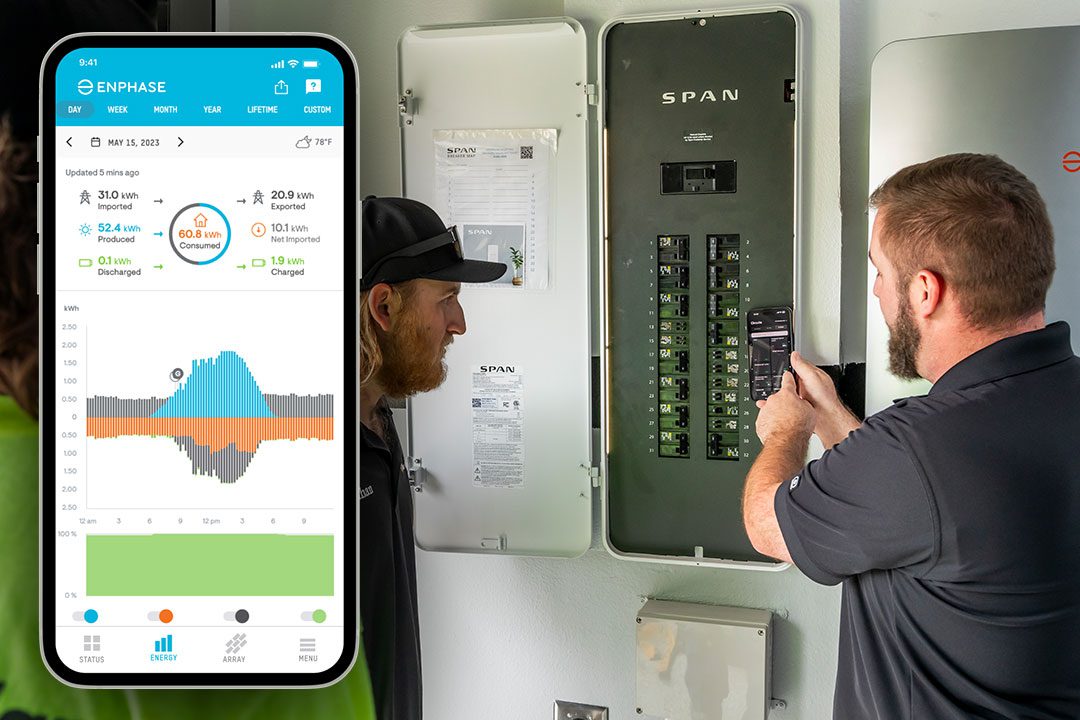
How does New Day Solar Handle Battery Storage Installation?
Adding a solar panel battery to your existing solar system is a great way to increase energy independence and resilience while maximizing the benefits of your renewable energy investment.
Here’s a step-by-step guide to help you navigate the process:
Assessment of Energy Needs:
Our skilled technicians begin by assessing your household’s energy consumption patterns to determine the additional storage capacity required from the solar panel battery. They consider peak energy demand times, daily usage, and backup power needs during grid outages.
Selection of the Right Battery System:
With expertise in various solar panel battery options, New Day Solar helps you choose the perfect system based on capacity, performance, efficiency, warranty, and cost. We ensure the selected battery seamlessly integrates with your existing solar setup.
Compatibility Checks:
We will verify the compatibility of the chosen solar panel battery with your existing solar panels and inverter. They ensure that the battery technology aligns with specific inverter or controller requirements for optimal functionality.
Location Determination and Site Preparation:
Our team assists in identifying a suitable location for the battery installation, considering factors like space availability, proximity to solar panels and inverters, and ease of maintenance access. We ensure the chosen location is well-ventilated and protected from environmental factors.
Site Preparation:
Prior to installation, we prepare the site by clearing obstacles, debris, and ensuring cleanliness and levelness. If needed, we make structural or electrical modifications to accommodate the battery system, such as installing mounting brackets or upgrading wiring.
Professional Installation:
Following manufacturer guidelines meticulously, our skilled technicians expertly install the solar panel battery system. This includes securely mounting the battery unit, connecting it to the solar panels and inverter, and configuring settings for optimal performance.
Thorough Testing:
After installation, our team conducts comprehensive testing to verify the solar panel battery system’s functionality and efficiency. We assess charging and discharging capabilities, monitor energy production and storage levels, and address any issues promptly.
Regular Monitoring and Maintenance:
Our team emphasizes the importance of regular monitoring and maintenance for optimal system performance. They provide guidance on monitoring battery voltage, temperature, and cleanliness, as well as software updates and other maintenance tasks as needed.
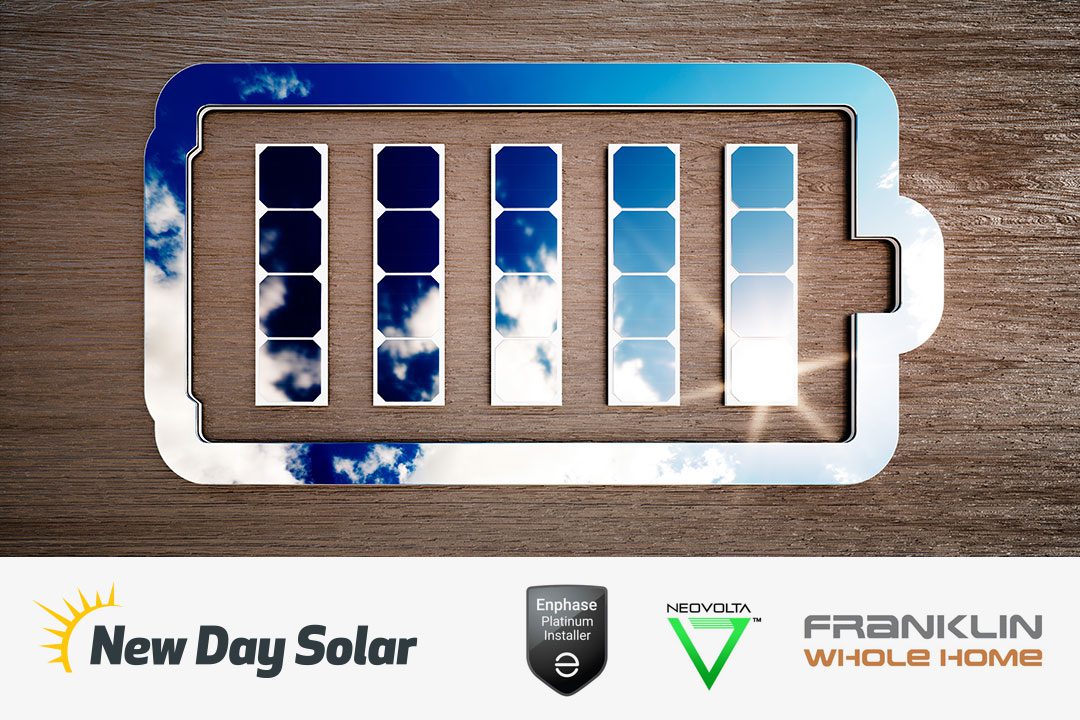
What If I Don’t Add Battery Storage to My Solar System?
Opting not to add battery storage to your solar system is a decision that comes with both advantages and limitations.
Here’s what to consider if you choose not to integrate battery storage:
Reliance on the Grid:
Without battery storage, your solar system will remain connected to the grid, relying on it for electricity when solar production is insufficient. While this ensures uninterrupted power supply, it also means you’re dependent on grid electricity and susceptible to power outages.
Limited Energy Independence:
Without battery storage, you’ll have limited ability to store excess solar energy for later use, particularly during peak demand times or grid outages. This may result in higher reliance on grid electricity and fewer opportunities for energy independence.
Missed Savings Opportunities:
Battery storage allows you to store excess solar energy and use it during times of high electricity prices or grid outages, potentially saving money on electricity bills. Without batteries, you may miss out on these savings opportunities and continue to pay higher utility rates.
Environmental Impact:
While solar panels reduce your reliance on fossil fuels and lower your carbon footprint, without battery storage, you may not fully maximize your renewable energy potential. Battery storage enables you to store and use more solar energy, further reducing your environmental impact.
Grid Stability Contributions:
Battery storage systems can help stabilize the grid by providing ancillary services such as frequency regulation and peak shaving. Without batteries, you’re missing an opportunity to contribute to grid stability and support the integration of renewable energy sources.
Future Energy Needs:
Consider your future energy needs and whether adding battery storage may become necessary as your household’s electricity consumption patterns change. While it may not be a priority now, future developments such as electric vehicle charging or home expansion could increase energy demand.
Economic Considerations:
Evaluate the upfront cost of adding battery storage versus the potential long-term savings and benefits. While battery prices are decreasing, the initial investment may still be a significant consideration for some homeowners.
Flexibility for Expansion:
Keep in mind that not adding battery storage now doesn’t mean you can’t do so in the future. Solar systems can typically be retrofitted with battery storage at a later date if your energy needs or preferences change.
Have questions about adding batteries to your solar system?
Whether you’re considering adding battery backup to your existing solar system or exploring the benefits of solar battery storage for the first time, New Day Solar is here to help.
Our team of experts is dedicated to guiding you through the process, from assessing your energy needs to seamlessly integrating battery storage into your solar setup. With our commitment to quality, reliability, and customer satisfaction, we ensure that your transition to solar battery storage is smooth and rewarding.
Don’t hesitate to reach out to New Day Solar today to learn more about how we can help you harness the power of solar energy and maximize your energy independence. Contact us to schedule a consultation or ask any questions you may have. Let us empower you to take control of your energy future and enjoy the numerous benefits of solar battery storage. Your journey to a greener, more sustainable energy solution starts here with New Day Solar.
Filed Under:
have questions?
Schedule a consultation
Find out more with an honest, no pressure consultation
with our team of solar experts.
